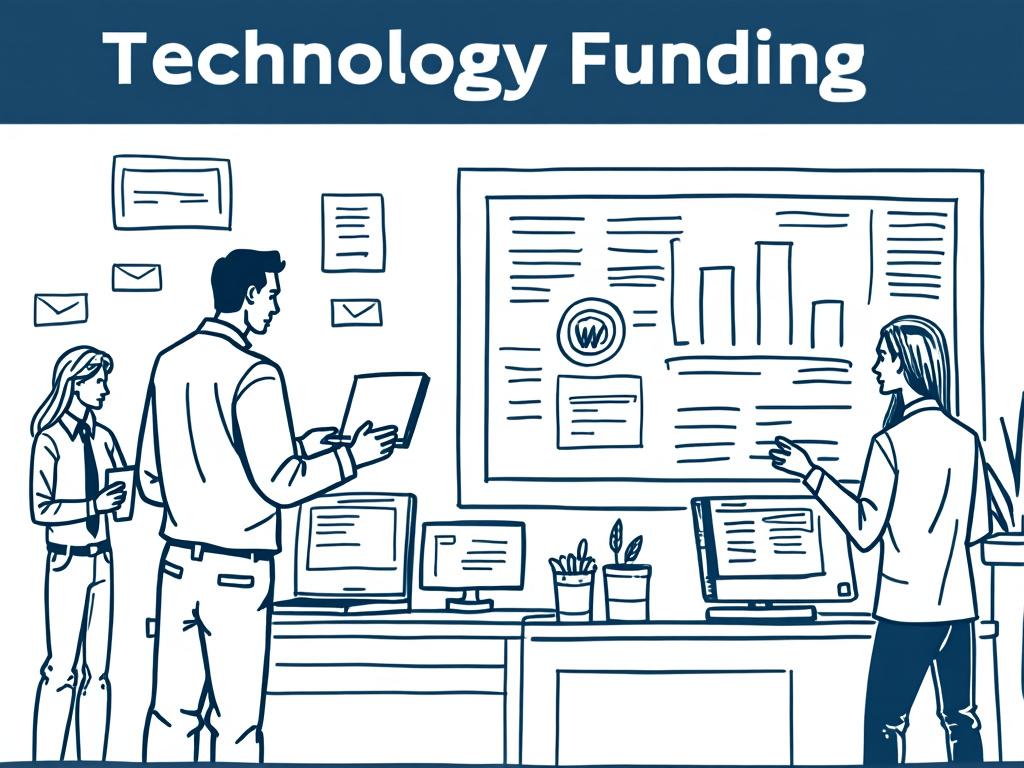
Opportunities in Greek Technology Startups: Funding and Growth Potential in 2025
Reading time: 12 minutes
Quick Navigation
Ever wondered why Greece is quietly becoming Europe’s next tech hotspot? You’re not alone. Beyond the ancient ruins and Mediterranean charm, a dynamic startup ecosystem is reshaping the country’s economic landscape.
Here’s the straight talk: Greece’s tech scene isn’t just recovering from past economic challenges—it’s thriving with unprecedented opportunities. With €2.1 billion in startup funding secured between 2019-2024 and government initiatives actively supporting innovation, the timing couldn’t be better for entrepreneurs.
Key Opportunity Insights:
- Rising venture capital investment with 40% year-over-year growth
- Government-backed funding programs offering up to €500K grants
- Emerging fintech and healthtech sectors showing explosive growth
- Strategic EU location advantages for market expansion
Current Greek Tech Ecosystem Overview
Quick Scenario: Imagine launching a fintech startup from Athens while enjoying significantly lower operational costs than London or Berlin, yet maintaining full EU market access. This isn’t fantasy—it’s Greece’s current reality.
The Greek startup ecosystem has undergone remarkable transformation since 2020. According to Endeavor Greece’s latest report, the country now hosts over 1,200 active startups, with Athens emerging as the primary innovation hub. The ecosystem’s maturation is evident through several key indicators:
Infrastructure Development: Modern co-working spaces like The Cube Athens and Orange Grove have created collaborative environments fostering innovation. Additionally, tech parks in Thessaloniki and Patras are expanding rapidly, providing startups with state-of-the-art facilities at competitive rates.
The talent pipeline has strengthened considerably, with Greek universities producing approximately 8,000 STEM graduates annually. Many previously emigrated professionals are returning, bringing international experience while benefiting from Greece’s improved economic stability.
Greek Tech Ecosystem Growth Metrics (2020-2024)
+380%
+420%
+240%
12 Companies
Funding Landscape and Investment Trends
Well, here’s the reality: Greek startups are no longer struggling for capital. The funding ecosystem has diversified dramatically, offering multiple pathways for entrepreneurs at different stages.
Government-Backed Initiatives
The Greek government’s “Digital Transformation Bible 2020-2025” allocates €2.65 billion toward digital innovation. Key programs include:
Equifund: This €500 million fund-of-funds program has already deployed €180 million across 45 Greek startups. Unlike traditional VC funding, Equifund focuses on co-investment strategies, reducing risk for private investors while amplifying available capital.
NSRF Digital Convergence: Offering grants up to €500,000 for early-stage startups, this program has maintained a 23% approval rate, significantly higher than EU averages. The application process, while rigorous, provides comprehensive support through dedicated advisors.
Private Investment Growth
European VCs are increasingly viewing Greece as an attractive investment destination. Notable funds like Marathon Venture Capital, VentureFriends, and international players such as Atomico have established significant Greek portfolios.
| Funding Stage | Average Amount | Success Rate | Timeline |
|---|---|---|---|
| Pre-Seed | €50K – €150K | 35% | 2-4 months |
| Seed | €300K – €800K | 28% | 4-6 months |
| Series A | €1.5M – €4M | 18% | 6-12 months |
| Series B+ | €5M – €15M | 12% | 8-18 months |
High-Growth Sectors and Market Opportunities
Fintech Revolution
Greece’s banking sector modernization has created unprecedented opportunities for fintech startups. Traditional banks are actively seeking partnership opportunities, creating a collaborative rather than competitive environment.
Payment Solutions: With cash transactions still representing 68% of Greek consumer payments, digital payment platforms show enormous potential. Companies like Viva Wallet have demonstrated this opportunity, growing from Athens-based startup to €2 billion valuation.
Healthtech and Digital Wellness
The COVID-19 pandemic accelerated digital health adoption in Greece by approximately five years. Telemedicine usage increased 1,200% between 2019-2024, creating massive market opportunities for innovative healthtech solutions.
Key growth areas include:
- Remote Patient Monitoring: Aging population driving demand for home-based health solutions
- Mental Health Platforms: Growing awareness creating new market segments
- AI-Powered Diagnostics: Healthcare system efficiency improvements generating public sector contracts
Overcoming Common Startup Challenges
Let’s address the elephant in the room: Greece still faces certain structural challenges that smart entrepreneurs can navigate successfully.
Challenge 1: Bureaucratic Complexity
The Reality: Greek bureaucracy can be daunting, with business registration taking an average of 11 days compared to EU average of 8 days.
Strategic Solution: Leverage digital-first approaches. The gov.gr platform now handles 80% of business registration processes online. Additionally, partnering with local legal firms specializing in startup formation can reduce timeline to 5-7 days while ensuring compliance.
Challenge 2: Talent Acquisition
The Reality: Competition for senior technical talent has intensified, with salary expectations rising 35% since 2022.
Strategic Solution: Focus on hybrid remote models attracting Greek diaspora professionals. Many experienced developers working in London, Berlin, or Silicon Valley are interested in returning to Greece for the right opportunity. Additionally, junior talent development programs can create loyal, high-performing teams.
Case Studies: Greek Tech Success Stories
Workable: From Athens to Global HR Platform
Workable’s journey illustrates Greece’s startup potential perfectly. Founded in Athens in 2012, the company secured initial funding through local investors before expanding internationally. Today, Workable serves over 27,000 companies globally and has raised $110 million in total funding.
Key Success Factors:
- Leveraged Greece’s lower operational costs during initial growth phase
- Maintained strong Athens engineering team while expanding globally
- Utilized EU market access for rapid European expansion
Beat: Energy Trading Innovation
Beat Energy, founded in 2021, demonstrates how Greek startups are tackling complex European challenges. The platform uses AI to optimize energy trading for renewable sources, securing €3.2 million in Series A funding within 18 months.
The company’s success highlights Greece’s growing expertise in cleantech, supported by the country’s renewable energy leadership in southeastern Europe.
Strategic Entry Points for Entrepreneurs
Ready to transform opportunity into action? Here’s your practical roadmap for entering the Greek tech ecosystem:
Immediate Action Steps
1. Market Research and Validation
Before diving in, conduct thorough market analysis. Greek consumers show distinct preferences that may differ from broader European markets. For instance, mobile-first solutions are crucial, as Greece has 126% mobile penetration rate.
2. Legal Structure Optimization
Choose between Greek S.A. (Societe Anonyme) for larger ventures or EPE (Limited Liability Company) for smaller startups. Each structure offers different tax advantages and funding eligibility criteria.
3. Location Strategy
Athens offers the largest talent pool and investor network, but cities like Thessaloniki provide lower costs and strong university partnerships. For entrepreneurs considering Greece long-term, exploring houses for sale in Athens can provide both personal stability and potential investment returns in a recovering real estate market.
Pro Tip: The right preparation isn’t just about avoiding problems—it’s about creating scalable, resilient business foundations that can leverage Greece’s unique advantages while mitigating traditional challenges.
Funding Strategy Development
Phase 1: Bootstrap using Greece’s low operational costs
Phase 2: Apply for government grants and accelerator programs
Phase 3: Engage with local VCs and angel networks
Phase 4: Expand to European institutional investors
Your Greek Tech Venture: Strategic Planning for 2025
As we look toward 2025, Greece’s technology ecosystem stands at an inflection point. The convergence of increased funding availability, government support, improving infrastructure, and growing international recognition creates a unique window of opportunity for ambitious entrepreneurs.
Your Strategic Roadmap Forward:
- Conduct Market Entry Analysis: Evaluate specific sector opportunities against your expertise and resources. Focus on areas where Greece’s unique advantages (EU access, lower costs, specialized talent) align with global market needs.
- Build Local Networks Immediately: Engage with organizations like Found.ation, Startup Greece, and SEV (Hellenic Federation of Enterprises). These connections often prove more valuable than initial funding.
- Develop Hybrid Growth Strategy: Plan for Greek operational base with European market expansion. This approach maximizes cost advantages while accessing larger revenue opportunities.
- Secure Multiple Funding Pathways: Don’t rely on single funding sources. Combine government grants, private investment, and revenue generation to create financial resilience.
- Invest in Long-term Vision: Greece’s startup ecosystem is still evolving. Early entrants who build sustainable businesses will benefit from first-mover advantages as the market matures.
The transformation happening in Greece’s tech sector represents more than economic recovery—it signals a fundamental shift toward innovation-driven growth. For entrepreneurs willing to navigate initial challenges while capitalizing on emerging opportunities, Greece offers a compelling combination of European market access, government support, growing investor interest, and operational advantages.
What specific sector or opportunity in the Greek tech ecosystem aligns most closely with your entrepreneurial vision? The time to explore these possibilities isn’t tomorrow—it’s now, while the ecosystem continues expanding and barriers to entry remain relatively low.
Frequently Asked Questions
What are the typical timelines for securing funding in Greece’s startup ecosystem?
Funding timelines vary significantly by stage and source. Government grants typically require 3-6 months from application to disbursement, while private seed funding averages 4-6 months. Series A rounds can extend 6-12 months due to due diligence requirements. The key is maintaining multiple parallel funding conversations rather than sequential approaches. Most successful Greek startups secure bridge funding or revenue generation to maintain momentum during longer funding cycles.
How does Greece’s regulatory environment affect technology startups compared to other EU countries?
Greece has significantly streamlined its regulatory approach for startups since 2020. The new “Startup Act” provides tax incentives, simplified registration processes, and reduced bureaucratic requirements specifically for technology companies. While some administrative processes remain slower than Northern European countries, the regulatory framework now actively supports innovation. GDPR compliance and other EU regulations apply equally, but Greece offers additional startup-specific exemptions and support programs that many other EU countries lack.
What are the main advantages of establishing a tech startup in Greece versus other European locations?
Greece offers several compelling advantages: operational costs 40-60% lower than major European tech hubs, access to highly educated talent with competitive salaries, comprehensive government funding programs, full EU market access, and growing investor interest creating less competition for funding rounds. Additionally, Greece’s strategic location provides excellent access to emerging markets in the Balkans and Middle East. The combination of lower costs, government support, and EU membership creates a unique value proposition for startups seeking to maximize runway while accessing large markets.

Article reviewed by Adrian Sokolov, Post-Soviet Industrial Assets | Revitalizing Manufacturing Zones, on June 6, 2025





